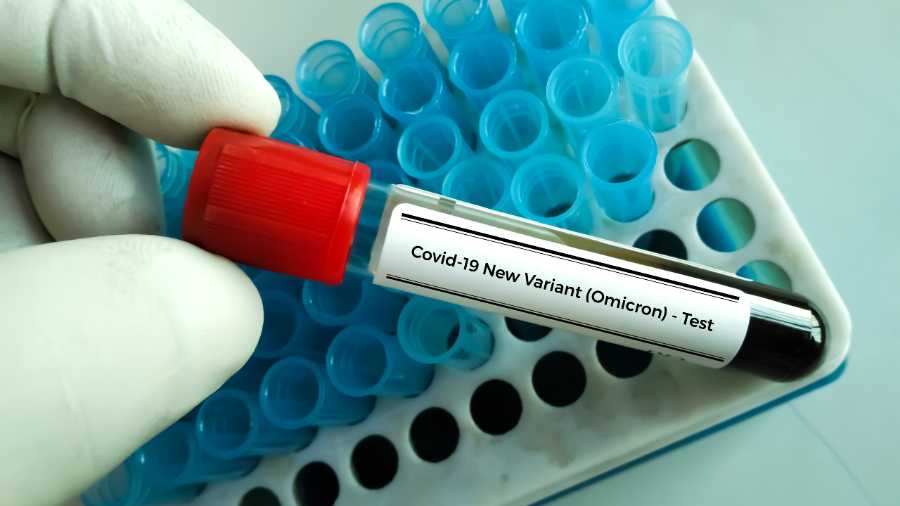Delhi and Maharashtra, the states with the highest counts of currently documented omicron infections, are set to become India’s canaries in the coalmine to assess how the strain might impact demand for hospitals, medical experts said.
The nationwide count of omicron infections rose to 961 in 22 states on Thursday morning with 263 cases in Delhi and 252 in Maharashtra, implying the potential for omicron-driven clusters of infections in both states.
But doctors said it was still too early to infer anything about disease severity.
“We’ll need at least two more weeks. The demand for hospitalisation increases a week or two into the surge,” said Rahul Pandit, a critical care medicine specialist at Fortis Hospital in Mumbai and member of Maharashtra’s Covid-19 task force.
Doctors and researchers say it is also unclear for now what fraction of new infections nationwide or in any state is caused by omicron. The impact of omicron on hospital demand will be apparent when it becomes the predominant variant.
Some researchers say it is possible that omicron and delta are competing. Although India’s second wave was driven by the delta variant, it is possible that it might also again lead to fresh clusters of infections.
“The low temperatures in winter, air pollution, waning immunity in the population and an all-time low level of Covid-19 appropriate behaviour — any combination of these factors might also cause delta clusters to emerge,” Pandit said.
For now, the sharp surge in daily new infections in Delhi and Maharashtra do not appear linked with any signs of increasing death counts.
In Delhi, the seven-day average of daily new infections has jumped over 12-fold over the past month, from 30 on November 25 to 370 on December 29, but the seven-day average counts of daily deaths changed from 0 to 1.
In Maharashtra, while daily new infections have more than doubled over the past month, from 752 on November 25 to 1,889 on December 29, the average daily deaths decreased from 24 to 17 over that period.
“Even amid the sharp increase in Covid-19 cases, we haven’t seen very sick patients in recent weeks. Hospitalisation at the moment is low, which is a huge relief,” said Viny Kantroo, a respiratory medicine specialist at Apollo hospital, New Delhi.
“But it may be early because the denominator (overall counts of patients) is low at this moment,” she said.
“We see evidence of immune evasion — infections in people who have already had Covid-19 or have been vaccinated, but only mild symptoms.”
Observations from Denmark, South Africa and the UK have indicated that omicron infections are associated with reduced risk of hospitalisation compared with infections caused by the delta variant.
In the UK, for instance, daily new cases have tripled from 43,000 to over 130,000 over the past month, but the seven-day average deaths have fallen from 122 on December 1 to 74 on December 29.
Health experts say hospitalisation trends through January in India’s states with the largest surges and counts of omicron infections will tell whether the observations in South Africa and Europe will also hold in India.











